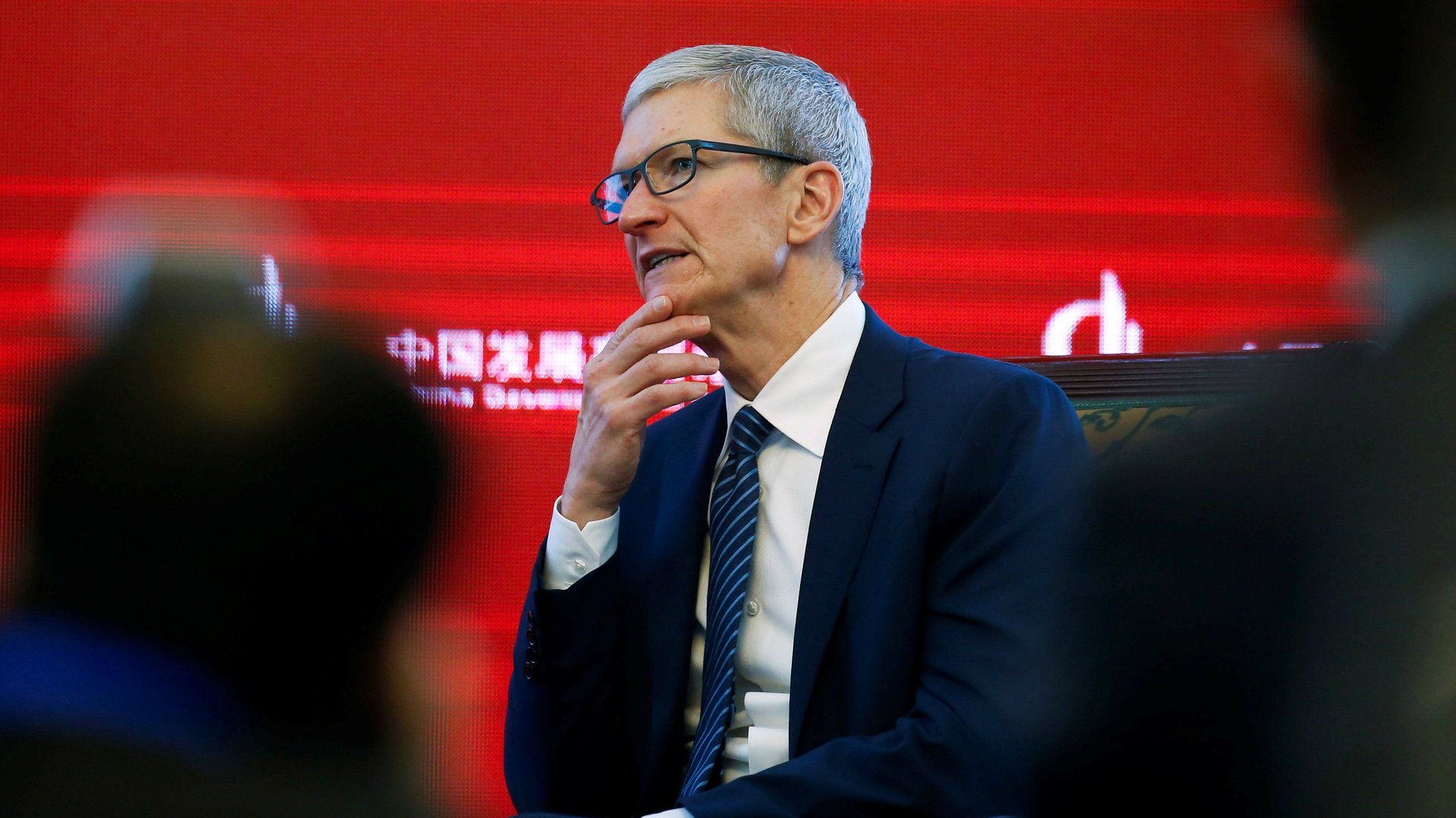Slowing growth is the new normal for Apple in China
Apple just announced its earnings for the quarter ending March 2017, and in China, the numbers tell a familiar tale. Sales are slowing, confirming the company’s heyday in the country has come to an end and that it can no longer rely on China as a growth engine.


Apple just announced its earnings for the quarter ending March 2017, and in China, the numbers tell a familiar tale. Sales are slowing, confirming the company’s heyday in the country has come to an end and that it can no longer rely on China as a growth engine.
Apple reported Greater China (Hong Kong, mainland China, and Taiwan) revenues of $10.73 billion, marking an annual decrease of 14%.
That marks the fifth quarter in a row where Apple has logged negative growth in the region. And while the company suffered a global lag in sales from late 2015 to late 2016, revenues from China continue to sink even as others recover. For the past two quarters, Greater China marks the only region where annual sales growth has been negative.
In the company’s earnings call, CEO Tim Cook blamed unfavorable exchange rates, as well as falling numbers of mainland Chinese tourists to Hong Kong—the city was once a popular place for Chinese visitors to buy iPhones, due to a lag in release dates and price differences. But the true cause likely remains the larger problem Apple faces in China—everyone who wanted an iPhone now has one already.
Cook did point to the App Store (and in other countries, iCloud, Apple Music, and other offerings) as one bright spot. He stated that the company logged “double-digit revenue growth” from its “services” segment in China, which includes software sales from the App Store.
But that double-digit growth is likely coming from a relatively small base. Moreover, maintaining that double-digit sales growth for software in China will prove difficult. The Chinese government, ever keen to police both foreign companies and its online media industry, has thrown hurdles at Apple’s software ambitions. Throughout the past year, authorities have forced Apple to shut down its iBooks and iTunes movie stores and remove the the New York Times app from the App Store. The company also faces an “inquiry” for allegedly offering apps that contain pornographic content. And on top of that, there’s the possibility that Tencent, makers of the popular WeChat chat app, will attempt to develop a pseudo-app store of its own that will go head to head with Apple’s App Store.